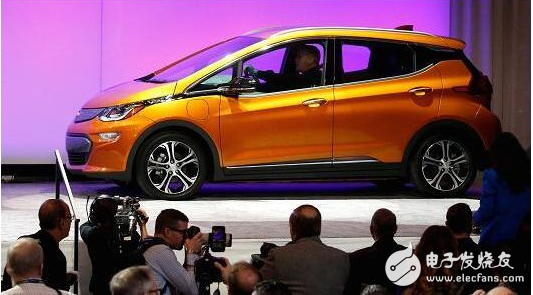According to foreign media reports, global automakers are injecting vitality into the electric vehicle (EV) market. Car giants such as Ford and Volvo have recently stated that they will stop producing fossil fuel vehicles after 2019. Is the replacement of the internal combustion engine already inevitable? Michelle Krebs, executive analyst at AutoTrader, a US auto trading platform, said in an interview recently: "I don't think this is an imminent trend. Before we see a significant increase in the number of electric cars, there are Many problems remain to be resolved."
This shows that although large automakers are accelerating toward the future, American drivers are not ready to fully accept plug-in hybrids. Krebs said: "Consumers have not chosen to fully accept them. When we conduct an investigation, consumers will say 'yes, they are very interested in electric cars'. But when they really buy a car, they will still choose Buy a fuel car."

According to data released by EV Obsession, a European electric vehicle research institute, although the sales of electric vehicles in the United States increased by nearly 50% in July 2017 compared with the same period of last year, Krebs insisted that electric vehicles have not reached the level of “ubiquitousâ€. At least not yet. “Electric vehicles account for only about 1% of total US car sales. We are more focused on consumer acceptance, and they are clearly not fully prepared,†she said.
Despite this, automakers continue to invest in the electric vehicle sector to create future vehicles. Ford plans to invest $4.5 billion to develop electric vehicles and plans to introduce 13 new electric vehicles in the next five years. In addition, General Motors (GM) said that by 2023 there will be more than 20 electric vehicles to choose from.
However, Krebs stressed that this requires more charging stations. She said: "In most places, in addition to California, there is not enough charging infrastructure." Krebs believes that this is a "chicken or egg first" problem. As more electric vehicles emerge, there will be more infrastructure. But you also need infrastructure to attract people to buy electric cars. And now we have not reached this turning point.
Krebs also said that the cost of electric vehicles also needs to be reduced, and the cruising range must be increased. For example, the Chevrolet Bolt EV is priced at $37,495 and does not include the $7,500 federal government tax exemption. At the same time, the 2018 Bolt can charge up to 383 kilometers on a single charge, which is actually farther than the 241 km of the Nissan Leaf. Krebs explained: "We are very concerned about the battery, they need to reduce costs, reduce the size, so that they can be loaded into different cars. At the same time, we must reduce the weight, which also helps to improve the cruising range."
In addition, Krebs pointed out that most electric cars are cars, while trucks and off-road vehicles are more popular. Last year, the top three best-selling models were pickup trucks, including the Ford F-Series, the Chevrolet Silverado and the Dodge Ram.
If the price of fuel is still very cheap when the new electric car begins to appear in 2020, it will be difficult for buyers to give up their gas-powered cars and choose electric cars. Krebs asked: "This is related to the economy. Can it improve the quality of life of a person? Can it make travel easier? Before any new technology is fully accepted, these problems need to be solved first. â€
3V Lithium Fluorocarbon TPMS Button Batteries
3V Lithium Fluorocarbon TPMS Button Batteries use fluorocarbon material as the battery positive electrode. The fluorocarbon material has high thermal and chemical stability. It does not decompose at high temperature ≤600℃, and does not crystallize at low temperature. The battery operating temperature range can reach -40~125℃ ; Its chemical stability ensures the safety of the battery, so that the battery has a higher safety performance when short-circuit, collision, and extrusion, and has the characteristics of explosion-proof and spontaneous combustion. Our company uses self-developed electrolyte to make the battery life more than 10 years.
Our BR series button batteries are conventional high and low temperature resistant button batteries, and the working temperature is -40℃~+85℃
Accepts customized upgraded version of high and low temperature resistant button battery, working temperature is -40℃~ +125℃
Battery application range: It can be used in fields that have strict requirements for high and low temperatures and high energy density. For example, automobile tire pressure gauge (TPMS) battery, industrial control motherboard battery, computer motherboard battery, smart instrument battery, oil field drilling platform emergency equipment power supply, marine life-saving flasher, implantable medical battery, etc.
3V Lithium Fluorocarbon Tpms Button Batteries,Long Lasting Coin Battery For Tvremote,Button Cells For Toys,Coin Battery For Car Keys
Shandong Huachuang Times Optoelectronics Technology Co., Ltd. , https://www.dadncell.com